Cities account for 56 percent of the world's population, approximately 80 percent of global GDP and energy consumption, and contribute to 70 percent of greenhouse gas emissions. Due to the rise in population and income levels, urban demand for goods and services is on the ascent. Cities grapple with diverse challenges related to sustainability, encompassing economic, environmental,…
Moderator(s)
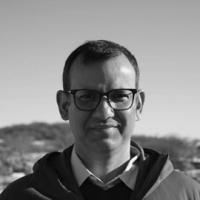
Neeraj is a natural resource economist by training and has operational experience of working on natural resource management and rural livelihood issues. He is skilled in research methods, program and policy evaluation, and economic analysis. He has been working with the Evaluation Office since August 2005. He holds a Master's Degree in Public Affairs from the Woodrow Wilson School of Public and International Affairs, Princeton University, with specialization in Economics. Prior to his studies he worked with Seva Mandir, an NGO working on rural livelihood concerns of the tribal population in Western India. During this engagement he planned and implemented projects on community forestry, watershed development, pastureland development and agriculture extension. Neeraj also holds a Post Graduate Diploma in Forestry Management (PGDFM) from the Indian Institute of Forest Management (IIFM).
Presenter(s)
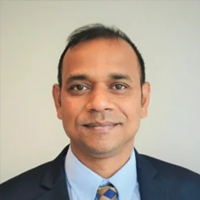
Aloke leads the Sustainable Cities program of the Global Environment Facility, which supports integrated approaches towards building net-zero, nature-positive, resilient and inclusive cities. In his role, he leads programming of GEF funds for sustainable cities and manages the GEF's partnerships with cities, countries, and a range of specialized institutions. Aloke also works in the adaptation team as a Senior Climate Change Specialist in programming the Least Developed Countries Fund (LDCF) and Special Climate Change Fund (SCCF). In this role, he focuses on supporting development of projects in Least Developed Countries in Africa and designing strategic global projects cutting across various adaptation priorities. Aloke has more than 20 years of extensive experience of working in non-profit, private and donor organizations on climate change, clean energy, natural resource management, and sustainable livelihoods at multiple levels. He holds a Master of Public Affairs degree from Indiana University, Bloomington, United States.
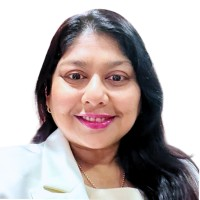
Anusha Magendram is a Senior Manager in the Malaysian Industry-Government Group for High Technology (MIGHT) under the Sustainable Development Technologies Department. She brings 19 years of relevant experience into Sustainable Development, particularly around Smart Cities Development. Her work here centers primarily on management and coordination of the Malaysia Smart Cities Alliance (MSCA) and project “Sustainable-city in Malaysia” under Sustainable Cities Integrated Approach Pilot (SCIAP) Programme for the Global Environmental Facility (GEF 6) organization for UNIDO. At MIGHT, she has been extensively involved in Project Management & Research, bilateral & multilateral projects, and science diplomacy programs. Before this, she has worked as Head of Operation in Yayasan Innovasi Malaysia and as Team Leader In MYOB Australia Pty Ltd. She holds a Master of Computer Science (majoring in Software Engineering), a Bachelor’s in Information & Technology (majoring in Software Engineering), and currently pursuing her Ph.D. at UKM.
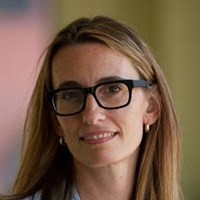
Mariana is a Senior Manager for Urban Development at WRI Ross Center for Sustainable Cities. By working on different projects, she provides technical support to develop integrated planning approaches for cities to become resilient, inclusive, low-carbon places that are better for people and the planet. Currently, Mariana manages the UrbanShift’s global initiative, a global partnership between UNEP, WRI, ICLEI and C40, funded by the GEF, that seeks to build capacity, share knowledge and raise climate leadership in Global South cities. Mariana coordinates the partnership, and leads the WRI work, including the City Academy, UrbanShift Labs, and geospatial analysis. Prior to joining WRI, Mariana worked at the World Bank, on urban investment projects and knowledge products focusing on slum upgrading, municipal infrastructure, affordable housing, urban planning and local economic development. She has edited books on urban regeneration and on metropolitan integrated planning, both published by the World Bank. Prior to the World Bank, Mariana worked the at the University of Michigan’s William Davidson Institute and at the Interamerican Development Bank. Mariana holds a B.A. in Political Science and International Relations from the Catholic University of La Plata, Argentina, and Master’s Degrees in Public Policy and Urban Planning from the University of Michigan.

Dr Olga Mrinska is Associate Director, Senior Evaluator at the Independent Evaluation Department, EBRD. Olga is a seasoned evaluator and researcher with many years of experience in independent and operational evaluation functions across a number of IFIs and international development organisations. She has solid knowledge of evaluation/ research methods and tools, international standards and criteria, solid track record of publications.
In the last several years she has led a number of strategic and operational evaluations, focusing on EBRD’s mandate in the area of green transition, good governance, inclusion, and competitiveness. Before joining the bank in 2016, she held various positions in the government, bilateral donors (DFID), international organisations, and analytical centres in Ukraine and in the UK. She holds a PhD in economic and social geography and published extensively on regional socio-economic development, regional and urban governance, policy impact. She is co-founder of Urban Space 500, a social enterprise aimed at supporting inclusive and sustainable growth of her home city of Kyiv, Ukraine.
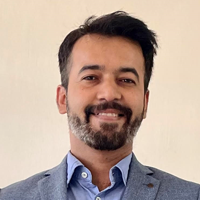
Sameer Saraswat is an urban technology and development professional specializing in resilient urban planning, use of urban technology and industrial development. An ADB-JSP scholar and University of Hawaii alumni, he firmly believes in using urban technologies such as Digital Twin, Building Information Modelling (BIM), GIS etc. for comprehensive multi-sector sustainable development. He has worked extensively with multi-disciplinary teams in both public and private sectors on large scale urban and industrial projects across Asia-Pacific. In his current role, he works for the United Nations on a GEF-funded pilot project which targets multiple urban sectors to achieve sustainable development and GHG reduction in Indian cities.




